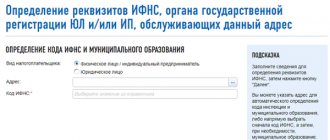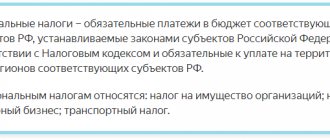The emergence of the Federal Tax Service of Russia
- THE EMERGENCE OF THE FEDERAL TAX SERVICE OF RUSSIA.
Taxation has been known since the state existed. It has now been reliably established that the first material evidence of taxes dates back to 3300-3200 BC. e. A little later, the first specialized bodies involved in collecting taxes appeared.
The modern history of the Russian tax system dates back to 1918, when the system of tax authorities of the Russian Empire was destroyed and new structures began to be created.
The Decree of the Council of People's Commissars of October 31, 1918 approved the Regulations on the organization of financial departments of provincial and district executive committees. At the same time, the previously existing tax authorities were abolished.
Changes that took place in the country in the late 80s - early 90s. also affected the area of taxation. As a result of the reorganization on the basis of existing tax authorities in 1990, the following were created:
- Main State Tax Inspectorate of the USSR Ministry of Finance;
- State tax inspectorates of the ministries of finance of the union republics;
- State tax inspectorates of the ministries of finance of the autonomous republics;
- State tax inspections of financial apparatuses of regions, territories, districts, cities, districts.
State tax inspectorates at various levels, carrying out the tasks assigned to them, were subordinate to the relevant ministries of finance and their local apparatus, as well as higher inspections.
In 1991 - 1992, a unified centralized State Tax Service of the Russian Federation was created. The unified centralized system of tax authorities consisted of:
- State Tax Service of the Russian Federation (STS RF);
- State tax inspectorates (STI) of republics within the Russian Federation, territories, regions, autonomous entities, cities with regional divisions;
- State tax inspectorates (STI) by district, city without district division and district in cities.
Since 1996, the All-Russian State Tax Academy of the State Tax Service of Russia was created. In addition, the Institute of Taxes and Taxation of the Financial Academy operates under the Government of the Russian Federation.
At the end of 1998, the State Tax Service of the Russian Federation was renamed into the Ministry of the Russian Federation for Taxes and Duties. The Russian Tax Ministry operated until September 2004, when it was transformed into the Federal Tax Service, which was reintroduced into the Ministry of Finance.
- FEDERAL TAX SERVICE OF RUSSIA AND ITS PURPOSE.
Federal Tax Service (FTS of Russia)
is a federal executive body exercising functions of control and supervision over compliance with legislation on taxes and fees, over the correct calculation, completeness and timeliness of taxes and fees being entered into the relevant budget, in cases provided for by the legislation of the Russian Federation, over the correct calculation, completeness and timeliness making other mandatory payments to the appropriate budget for the production and circulation of ethyl alcohol, alcohol-containing, alcoholic and tobacco products, as well as the functions of a currency control agent within the competence of the tax authorities.
The Federal Tax Service of Russia is an authorized federal executive body that carries out state registration of legal entities, individuals as individual entrepreneurs and peasant (farm) households, as well as an authorized federal executive body that ensures the representation in bankruptcy cases and in bankruptcy procedures of requirements for the payment of mandatory payments and claims of the Russian Federation for monetary obligations.
The federal executive body authorized for control and supervision in the field of taxes and fees, and its territorial bodies consists of a single centralized system of tax authorities.
The Federal Tax Service is under the jurisdiction of the Ministry of Finance of the Russian Federation.
The Federal Tax Service of Russia carries out its activities directly and through its territorial bodies in interaction with other federal executive authorities, executive authorities of constituent entities of the Russian Federation, local government bodies and state extra-budgetary funds, public associations and other organizations.
The Federal Tax Service is headed by a director who is appointed and dismissed by the Government of the Russian Federation on the proposal of the Minister of Finance of the Russian Federation.
The location of the Federal Tax Service is Moscow.
The Federal Tax Service and its territorial bodies in the established field of activity are the legal successors of the Ministry of the Russian Federation for Taxes and Duties, as well as the Federal Service of Russia for Financial Recovery and Bankruptcy in all legal relations related to the representation of the interests of the Russian Federation in bankruptcy proceedings.
- SYSTEM OF TAX AUTHORITIES OF THE RUSSIAN FEDERATION.
Federal Tax Service department by subject
Russian Federation
The Federal Tax Service system includes subordinate organizations.
Subordinate organizations of the Federal Tax Service:
- Main Research Computing Center of the Federal Tax Service of Russia (FSUE GNIVTs FTS of Russia);
- State Research Institute for the Development of the Tax System of the Federal Tax Service of Russia (GNII RNS);
- State medical and recreational, educational institutions and federal state unitary enterprises under the jurisdiction of the Federal Tax Service of Russia;
Territorial bodies of the Federal Tax Service:
- departments of the Federal Tax Service for the constituent entities of the Russian Federation;
- interregional inspections of the Federal Tax Service;
- Federal Tax Service inspections for districts, districts in cities, cities without district division;
- inspections of the Federal Tax Service at the interdistrict level.
The Federal Tax Service is headed by a director appointed and dismissed by the Government of the Russian Federation on the proposal of the Minister of Finance of the Russian Federation.
The head of the Federal Tax Service is personally responsible for the implementation of the tasks and functions assigned to the Service.
The head of the Federal Tax Service has deputies who are appointed and dismissed from office by the Minister of Finance of the Russian Federation on the proposal of the head of the Service.
The central office of the Federal Tax Service of the Russian Federation includes the following structural divisions
:
- Tax Control Organization Department
- Office of Major Taxpayers
- Profit (income) taxation department
- Indirect Taxes Department
- Department of taxation of personal income, calculation and payment of state duties
- Office of the Unified Social Tax
- Department of Resource and Property Taxes
- Small Business Tax Administration
- Department of Credit Institutions
- Department of Taxes and Duties on Alcohol and Tobacco Products
- Department of State Registration and Accounting of Legal Entities and Individuals
- Department of Debt Settlement and Bankruptcy Proceedings
- Accounting and Reporting Department
- Department of Tax Revenue Analysis and Planning
- Tax Authorities Control Department
- Department of International Cooperation and Information Exchange
- Legal Department
- Information Technology Department
- Security Department
- Summary-analytical management
- Case management
- Office for Modernization of Tax Authorities
- Department of Civil Service and Personnel
- Financial Services Department
- Department of Logistics and Social Security
- Management of capital construction organization.
- MAIN TASKS AND OBLIGATIONS OF TAX AUTHORITIES.
The main tasks of the tax authorities are control over compliance with tax legislation, the correctness of calculation, completeness and timeliness of entering into the relevant budget of state taxes and other payments established by the legislation of the Russian Federation, as well as currency control carried out in accordance with the legislation of the Russian Federation on currency regulation.
Tax authorities are obliged:
- comply with laws on taxes and fees;
- exercise control over compliance with legislation on taxes and fees, as well as regulatory legal acts adopted in accordance with it;
- maintain records of organizations and individuals in accordance with the established procedure;
- inform taxpayers free of charge (including in writing) about current taxes and fees, legislation on taxes and fees and regulations adopted in accordance with it, the procedure for calculating and paying taxes and fees, the rights and obligations of taxpayers, the powers of tax authorities and their officials, as well as provide tax reporting forms and explain the procedure for filling them out;
- carry out a refund or offset of overpaid or overcharged amounts of taxes, penalties and fines in the manner prescribed by this Code;
- maintain tax secrecy;
- send to the taxpayer or tax agent copies of the tax audit report and the decision of the tax authority, as well as, in cases provided for by this Code, a tax notice and a request for payment of taxes and fees.
- DEPARTMENT OF THE FEDERAL TAX SERVICE OF RUSSIA.
The Department of the Ministry of the Russian Federation for Taxes and Duties for a constituent entity of the Russian Federation - a territorial body of the Federal Tax Service - is a legal entity, has an independent cost estimate, current accounts in bank institutions, a seal with the image of the State Emblem of the Russian Federation and with its name.
The main burden of working with taxpayers lies on the inspections of the Federal Tax Service of Russia in districts, districts in cities, cities without district division and inter-district level. The inspectorate is directly subordinate to the Department of the Federal Tax Service of Russia for the subject of the Federation. As a legal entity, the inspectorate independently, on its own behalf, acquires and exercises civil property and personal non-property rights, bears responsibilities, and acts as a plaintiff and defendant in court. It is the inspectorates that directly implement the above functions of the tax authorities.
2.3. Changes in the tax legislation of the USSR in 1941-1965.
During the war, a system of mandatory payments from the profits of state enterprises, established in the pre-war period, was in effect.
But in connection with the additional needs of the budget, decrees of the Presidium of the Supreme Soviet of the USSR dated November 21, 1941 and July 8, 1944 introduced new taxes and fees from the population: a tax on bachelors, single and small-family citizens of the USSR; war tax; collection from livestock owners; fee for registration of hunting and hunting dogs. The most exotic tax used in the USSR - on bachelors, single and small-family citizens - was introduced with the aim of mobilizing additional funds to help mothers with many children. It was intended to contribute to the growth of the country's population. This tax has no analogues in history and, except for the USSR, was established only in Mongolia. The tax was initially introduced as temporary, but lasted until the early 1990s.
Subsequently, significant changes were made to the tax legislation regarding income and property taxation of individuals; agricultural tax; unified state duty; collection for the needs of housing and cultural construction; tax on income from the demonstration of films, etc.
By the way, taxation of the film industry was first introduced in Tsarist Russia. This was the result of the wild success of the first Russian feature film, The Siege of Sevastopol. The picture was shown to members of the imperial family and made such an impressive impression that the emperor in the evening of the same day ordered that the “cinema” be taxed.
In the post-war period, taxation was gradually replaced by non-tax sources of budget replenishment. The main one was the redistribution of the bulk of the income of state enterprises and organizations. But at the same time they paid a turnover tax, the proceeds from which amounted, for example, in 1954 to 40% of the revenue side of the USSR budget.
In addition, collective farms had certain features of their tax and legal status. For example, unpaid taxes could only be collected through the people's court. Financial authorities carried out debt collection from enterprises and organizations out of court. In the literature, this was explained by the different nature of financial resources (forms of ownership). After all, the resources of organizations and enterprises were the national property, and collective farms were group, collective farm-cooperative property.
In the 1960s, a significant turn “around its own axis” occurred in the sphere of tax ideology. On the initiative of N.S. Khrushchev, an attempt was made to implement the gradual elimination of taxation in connection with the “inevitable construction of communism.” First of all, it was planned to reduce until completely abolishing taxes on workers' wages. For this purpose, a special legislative act was adopted - the USSR Law of May 7, 1960 “On the abolition of taxes on wages of workers and employees.”





